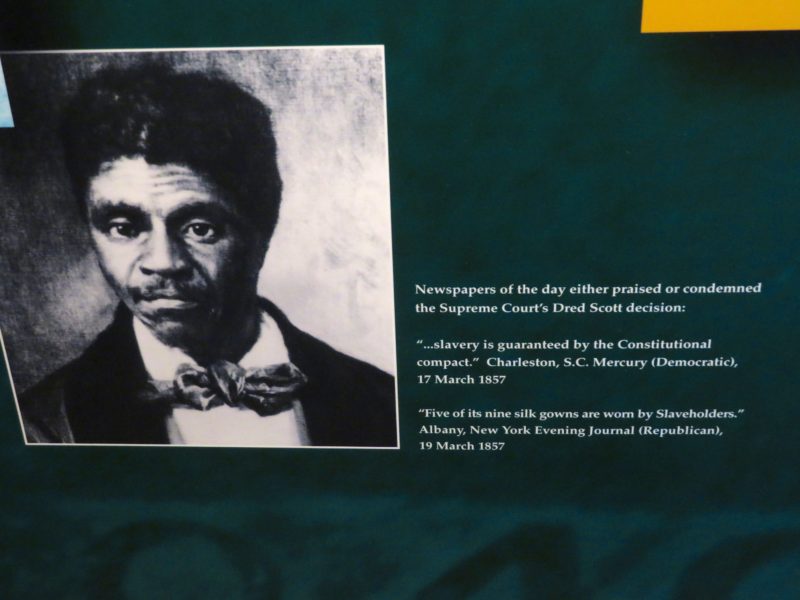
I opened yesterday with the fact that I have only questions and no real answers when it comes to reconciliation between parties where one wronged the other. That has not changed.
For today I picked a podcast that brings together descendants on both side of the Dred Scott decision, generally seen as the worst decision by any US Supreme Court in history. Dred Scott, a slave, sued for his freedom across all instances, ending up in the Supreme Court, (Dred Scott v. Sandford, 60 U.S. (19 How.) 393 (1857,) which came down in a 7-2 landmark decision on the side of those who considered Blacks inferior: all people of African ancestry — slaves as well as those who were free — could never become citizens of the United States and therefore could not sue in federal court. The court also declared the Missouri Compromise of 1820 (legislation that restricted slaveholding in some territories) as unconstitutional. Well, what would you expect from 9 justices, seven of whom had been appointed by pro-slavery presidents from the South, and of these, five were from slave-holding families.


Scott was bought by the man who had supported him financially and morally throughout the legal proceedings, and then set free. He died 9 months later.

Here is the conversation between Scott’s descendants and those of Chief Justice Taney who wrote the decision. Is this what you consider reconciliation?
https://www.wnycstudios.org/story/american-pendulum-ii-dred-scott/

Let’s add one more statistical bit to question many Americans’ assumptions about how much better things have gotten.
Racist violence in the US has increased by a mind-blowing 45 % in 2017.
https://www.thenation.com/article/trumps-xenophobic-vision-of-america-is-inciting-racist-violence/

No wonder then, that there is actually talk about reissuing the Green-Book….which helped Black motorists to traverse the US as safely as they could, particularly with regard to naming locations where no food or restroom or hotel rooms should be requested. Driving while Black is not a new phenomenon. http://www.history.com/news/the-green-book-the-black-travelers-guide-to-jim-crow-america
Photographs are from South Carolina.






